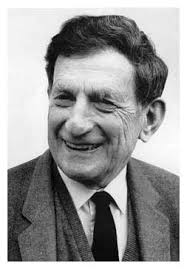Bohm Dialogue
"Dialogue resembles a number of other forms of group activity and may at times include aspects of them but in fact it is something new to our culture. We believe that it is an activity that might well prove vital to the future health of our civilization."
"...it is proposed that a form of free dialogue may well be one of the most effective ways of investigating the crisis which faces society, and indeed the whole of human nature and consciousness today. Moreover, it may turn out that such a form of free exchange of ideas and information is of fundamental relevance for transforming culture and freeing it of destructive misinformation, so that creativity can be liberated."
Dialogue and Leadership
A Dialogue is essentially a conversation between equals. Any controlling authority, no matter how carefully or sensitively applied, will tend to hinder and inhibit the free play of thought and the often delicate and subtle feelings that would otherwise be shared. Dialogue is vulnerable to being manipulated, but its spirit is not consistent with this.
Hierarchy has no place in Dialogue.
Nevertheless, in the early stages some guidance is required to help the participants realize the subtle differences between Dialogue and other forms of group process. At least one or, preferably two, experienced facilitators are essential. Their role should be to occasionally point out situations that might seem to be presenting sticking points for the group, in other words, to aid the process of collective proprioception, but these interventions should never be manipulative nor obtrusive.
Leaders are participants just like everybody else.
Guidance, when it is felt to be necessary, should take the form of "leading from behind" and preserve the intention of making itself redundant as quickly as possible.
Hierarchy has no place in Dialogue.
Nevertheless, in the early stages some guidance is required to help the participants realize the subtle differences between Dialogue and other forms of group process. At least one or, preferably two, experienced facilitators are essential. Their role should be to occasionally point out situations that might seem to be presenting sticking points for the group, in other words, to aid the process of collective proprioception, but these interventions should never be manipulative nor obtrusive.
Leaders are participants just like everybody else.
Guidance, when it is felt to be necessary, should take the form of "leading from behind" and preserve the intention of making itself redundant as quickly as possible.





